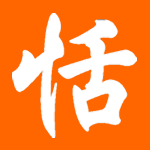Hi,
I came across your blog through Google. Yes, shamefully, I did it. Many years ago, I had my "initials" put on the back of my neck.
Now, I know the alphabet does not exist. If given a picture, could you tell me what it says?
I have tried many resources, and no one seems to be willing to help me out.
I am glad “CT” understood the fact that there is no such thing as the direct correlation between English alphabet and Chinese characters.
I was also surprised to find out 安 commonly used as “peaceful” and “tranquil”, could also mean “cheap” in Japanese, as in
安 【やす】 (pref) cheap; ED


The word in Japanese would be 安い(やすい). Just 安(やす) almost never appears alone.
ReplyDelete安, read as やす, does sometimes appear in compounds (値安, ねやす, cheapness; 目安, めやす, criterion or aim). I think this is done primarily to confuse gaijin foolish enough to learn the language :P
ReplyDeleteTo my knowledge, this 'cheap' doesn't have the negative connotations that the English word can have. Which is one thing to be thankful for.
Well, it does appear in Kyoto-ben, but as a verb suffix and always written in kana (as far as I know). Like in the phrase:
ReplyDeleteおこしやす京へ "Welcome to Kyoto" (okoshiyasu miyako e)
Hi,
ReplyDeleteI found your blog through the International Herald Tribune. It must be great having your blog cited by the IHT. Anyhow, I love your blog title 一知半解. I think it is so apt. I once saw a very handsome male model who had a 15cm long 福 tattooed on the side of his body. It was so unattractive and such a turn-off.
I am not sure if you know, Mel C from the Spice Girls had a tattoo on her arm - 女力 - which she believed to be "Girl Power". It was the most ridiculous thing I ever saw. It's not even a real word in Chinese.
I think the tattoo in this entry is incomplete. There is just 安 and the 三点水 prefix, which is completely useless on it's own.
Leaving the い off an adjective is a (not too uncommon?) colloquialism I think.
ReplyDeleteIf you look at the definition given, it has (pref, short for prefix), as in the 安物 usage
ReplyDelete"To my knowledge, this 'cheap' doesn't have the negative connotations that the English word can have."
ReplyDeleteSo it seems. I think that "inexpensive," a word devoid of the connotations of poor quality that can sometimes accompany "cheap," might generally be a more appropriate term.
Even having no knowledge that Chinese is not written with letters standing for individual sounds, why does it not occur to people how phenomenally unlikely it is that a foreign alphabet will also have one character only to stand for the beginning of names such as 'Charles, 'Clare' and 'Celia'? The letter 'C' is not a sound!
ReplyDeleteI'm a Chinese person living, studying and working in Japan for 5 yesrs, and I can speak both Chinese and Japanese fluently.
ReplyDeleteScarlet:
do you know there is a difference between 安い物(やすいもの,low price goods) and 安物(安物,low quality goods)?
sometimes,安(やす) does have a negative condition as 'worthless'.
also, an adjective '安っぽい' can also mean 'insincere' or 'flashy'.
julian:
'やす' in 'おこしやす京へ' dosn't written 安 in kanji.
No matter how I look at it, it's still not making 安.
ReplyDeleteMuch more like a blurry 狩, to me.
Hosnella: 安物 is one example of 安 having a negative meaning, it hadn't occurred to me. 安っぽい had, but it's literally 'cheap seeming', 'cheap looking' - in other words emphasising 'this looks tawdry', 'you can tell this was inexpensive' rather than 'this is a bargain'.
ReplyDeleteI guess my point was more that, in the Japanese reading of やす or やすい for the single character, there isn't anything overtly negative. As there would be if the tattoo read, in English, "CHEAP".
The 'Chinese' reading あん is also generally positive in Japanese.
I'm just trying to look on the bright side! The second character does indeed look like the artist gave up after the water radical. He'd had a long day, and the client wasn't to know better...
女力 may not be a valid chinese compound, but it's perfectly valid in Japanese, but then as two words, not as a compound. You have to remember that chinese characters aren't just used in China, but in other countries as well (even Korea and Vietnam to some extent, thought those countries have switched to writing things phonetically these days).
ReplyDeleteThe easiest way to read this is as Japanese "安シ", i.e. a rather archaic predicate form of 安い.
ReplyDeleteBTW, I wish people would stop saying "It's wrong because it makes no sense in Chinese!". That's like saying that a tattoo in French is wrong because it makes no sense in English.
OK, a trawl through my big fat Japanese dictionary reveals that 安し is indeed an alternative form of 安い. And a trawl through my brain reveals that I've probably seen it before in writing.
ReplyDeleteWhy write the し in katakana? I've seen Japanese where the grammatical particles and verb/ adjective endings are written in katakana, but don't know much about this style.
it looks like "寂" as in "寂しい" (lonely) to me. definitely not "安" or "狩".
ReplyDeleteand as hosnella has said, "やす" in "おこしやす" in not written in kanji.